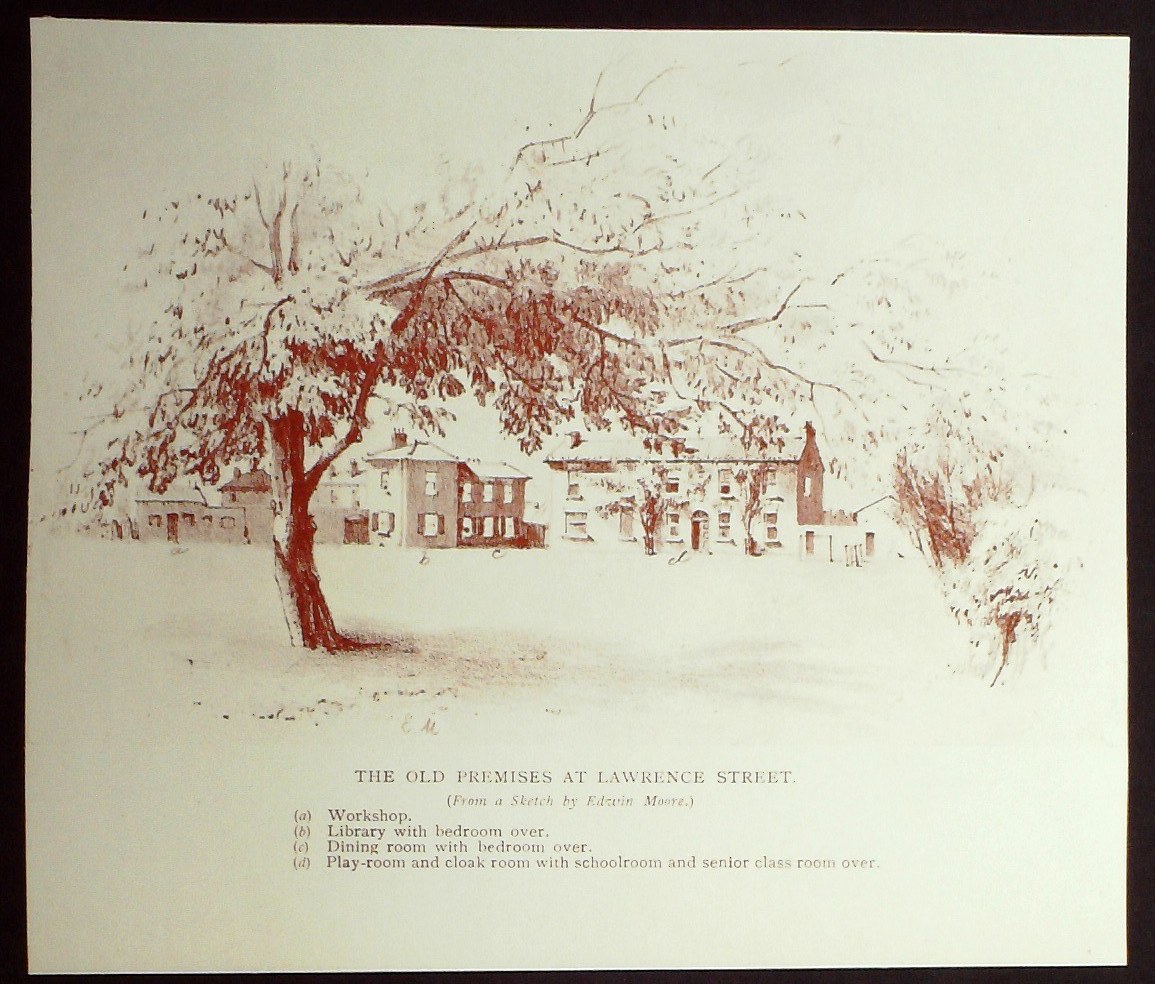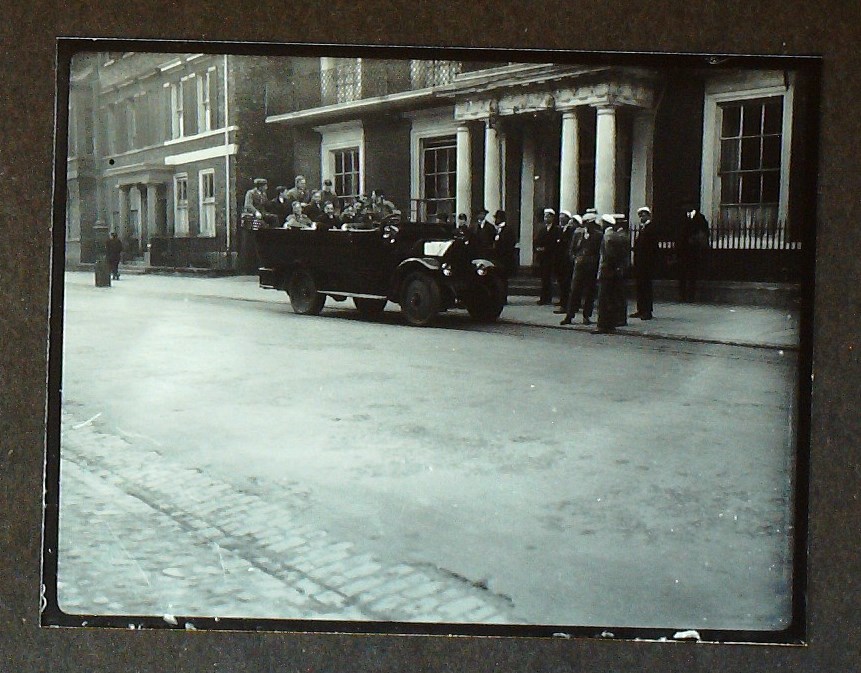In February 2016 I gave a talk about the archives as part of the Thursday lunchtime Recital Room series (click here for the full programme). I’ll put the talk on the blog in a series of posts. The second installment is below. Click here for the first installment (about Arthur Rowntree’s views about leisure activities).
I’ll start with sport. Cricket seems to have been played from the very early days of the school. Here are some of the rules of the cricket club about 1834 when the school was still at the Lawrence Street site – the question of who paid for broken windows appears to have been particularly important.
- That the Club shall pay for no windows broken by non-subscribers.
- That all non-subscribers playing when a window is broken, shall pay 1d. for a 1s. window, and 3d. for a 3s. 6d. window.
- That the Club will pay for no windows broken at single wicket, or when less than four subscribers are playing.
- That if a subscriber breaks a window or bat, or loses a ball, he shall pay half, and the Club the other half, but if a non-subscriber he shall pay all.
- That the balls or bats shall not be lent to play at any other game but cricket, under penalty of one penny.
- That if any other subscriptions should be afterwards wanted, those subscribers who do not pay them shall be subscribers no longer.
- That no non-subscriber shall play when there are more than eight subscribers playing, unless he is particularly wanted to make sides.
- That whoever throws any of the bats shall be fined the sum of 1d.
- That none of the bats and balls shall be used, except there are two subscribers playing.

Walter Sturge, who was at the school between 1844 and 1846, therefore was at both Lawrence Street and Bootham, didn’t play cricket until the school moved to the Bootham site, suggesting that at some point after the rules had been written, cricket was banned.
George Scarr Watson, at the school between 1853 and 1858 remembered that “Cricket was permitted; but we played no outside matches, and had to be content with the mild excitement of playing against ourselves. No flannel cricketing suits relieved the monotony of our black jackets, waistcoats and caps. No brilliant blazers, ribbons, ties or badges transgressed the Quaker rule.”
The earliest minute book we have for the cricket club starts in 1865 and runs till 1867, and the first outside match listed in that is against Ackworth in May 1865, although all the matches listed in that minute book are either internal matches, matches against Old Scholars or against Ackworth. The next record we have is a score book that runs from 1886, which contains a much wider range of opponents.

